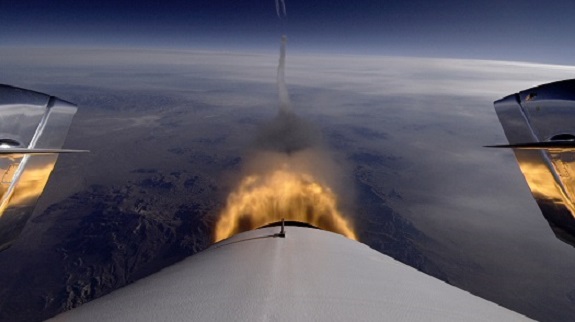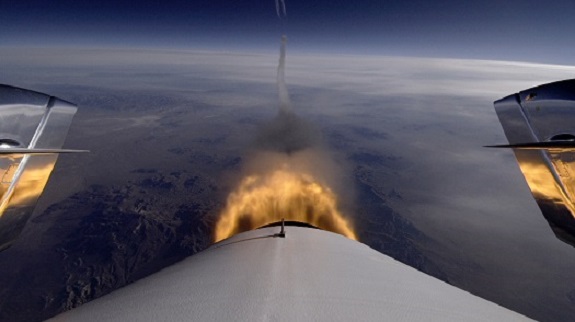
Congressman Blumenauer Proposes Carbon Tax on Human Space Launches (Image Credit: SNN)

WASHINGTON, D.C. (Earl Blumenauer PR) – As the space tourism race continues today, U.S. Rep Earl Blumenauer (D-OR), a senior member of the Ways and Means Committee, previewed a new space tax. The Securing Protections Against Carbon Emissions (SPACE) Tax Act would create new excise taxes on commercial space flights carrying human passengers for purposes other than scientific research.
“Space exploration isn’t a tax-free holiday for the wealthy. Just as normal Americans pay taxes when they buy airline tickets, billionaires who fly into space to produce nothing of scientific value should do the same, and then some,” said Blumenauer. “I’m not opposed to this type of space innovation. However, things that are done purely for tourism or entertainment, and that don’t have a scientific purpose, should in turn support the public good.”
As this budding space tourism industry takes shape, Blumenauer is particularly concerned about the environmental impact of sending humans into space, particularly when there is no scientific value associated with the launch. The number of trips to space are expected to increase, with Virgin Galactic planning to eventually launch a shuttle of passengers into space, on average, every 32 hours.
While proponents of suborbital space flights point to transatlantic flights as having similar carbon footprints, these flights carry significantly more passengers and travel much farther. The result is space launches accounting for an estimated 60-times greater emissions than transatlantic flights on a per-passenger basis, enough to drive a car around the earth and more than twice the carbon budget recommended in the Paris Climate Agreement.
Researchers are also actively exploring the impact of space launches on accelerating the depletion of stratospheric ozone, which is orders of magnitude greater for rocket engines using alumina-producing solid rocket fuel or black soot-producing kerosene.
Blumenauer envisions the SPACE Tax Act to include a per-passenger tax on the price of a commercial flight to space, like that for commercial aviation.
It would also include a two-tiered excise tax for each launch into space. The first tier would apply to suborbital flights exceeding 50 miles above the Earth’s surface but not exceeding 80 miles above the Earth’s surface. The second tier, which would levy a significantly higher excise tax, would apply for orbital flights exceeding 80 miles above the Earth’s surface.
Exemptions would be made available for NASA spaceflights for scientific research purposes. In the case of flights where some passengers are working on behalf of NASA for scientific research purposes and others are not, the launch excise tax shall be the pro rata share of the non-NASA researchers.
– Advertisement –








